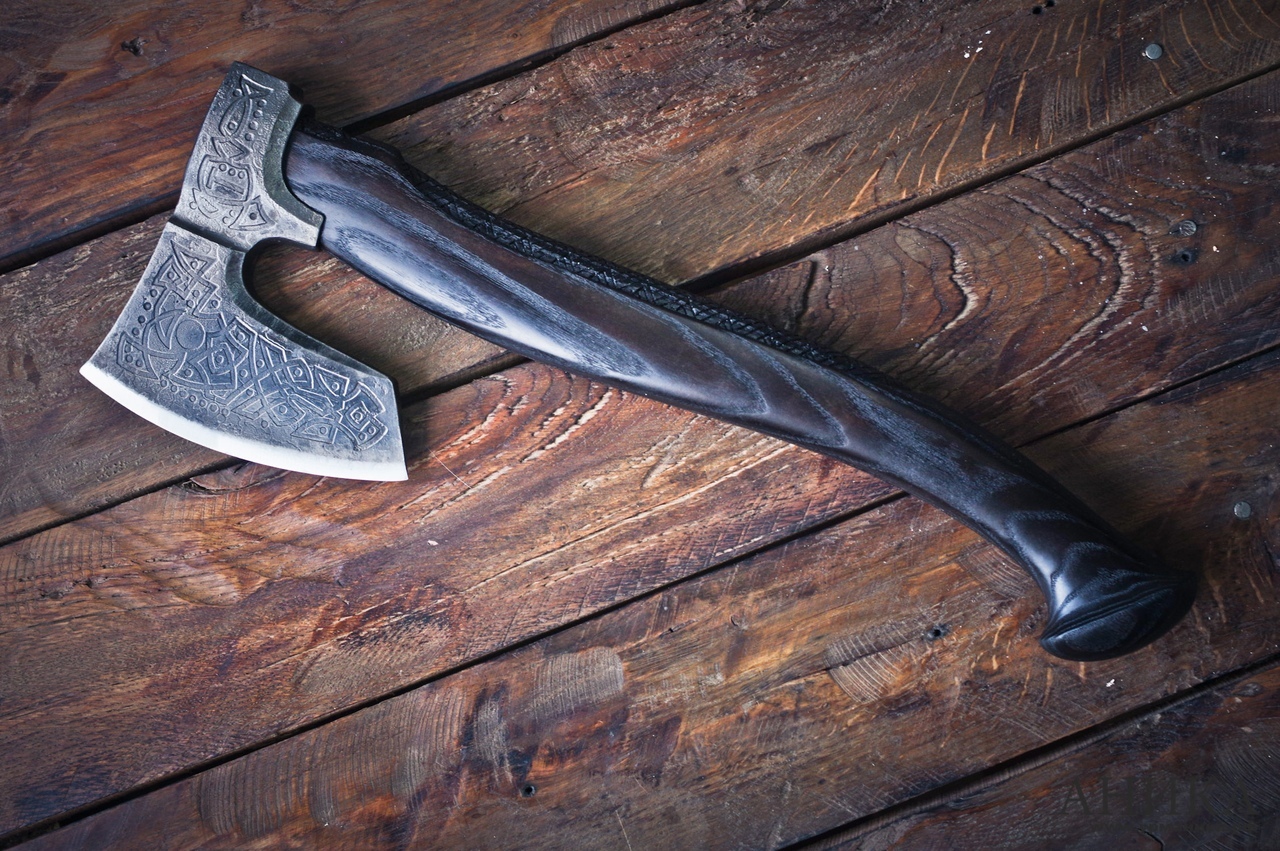How to choose an ax
An ax is one of the most basic and necessary tools for any summer resident. From ancient times to the present day it has been used for various tasks. Despite its primitiveness, the ax is extremely useful, effective and indispensable when working with wood.
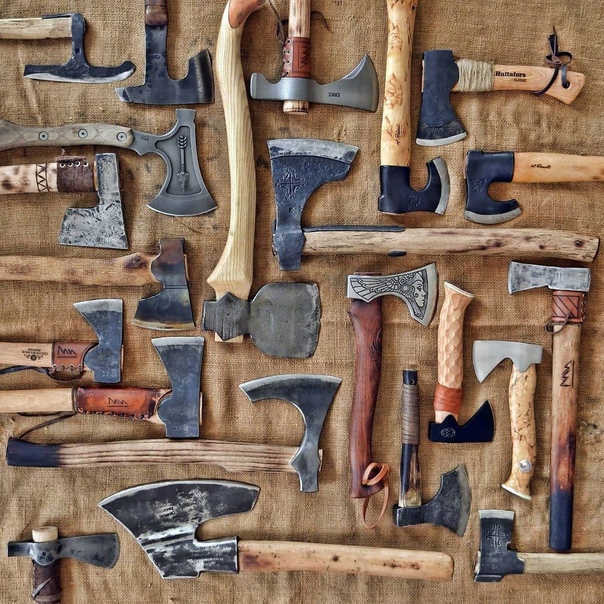
Species There are more than 30 axes; they are useful both on a camping trip for setting up a tent, and in the country when pruning trees, and when repairing a roof, and for chopping meat, and for chopping firewood. But it’s not enough to just go to the store and grab the first ax model you come across off the shelf. In order for it to clearly perform the tasks assigned to it, you need to buy a tool that will meet your requirements, and will also be of high quality and useful.
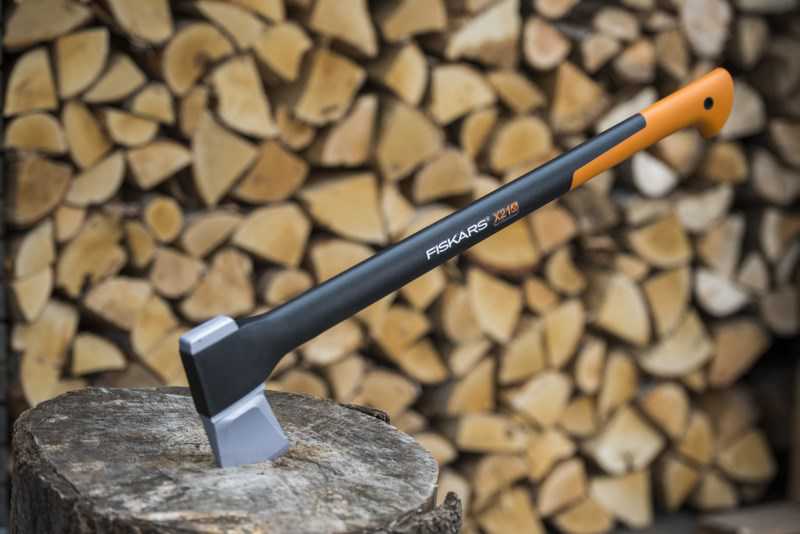
The content of the article
How to choose an ax: important criteria
The ax belongs to the group of percussion instruments. Regardless of the purpose and variety (and there are a lot of them), they all consist of two parts:
- head - working part;
- ax - handle, grip.
There are several key factors to consider when making your choice.
Head
The most important part of the axe. A high-quality product is, of course, made of metal - this allows it to process wood of different densities and maintain its integrity. To work effectively, the blade must be sharpened to a sharp cutting edge - thin enough to cut into the wood, but thick enough so as not to splinter on impact. All this depends on the quality of the steel from which the ax head is made.For example, you saved on the material of the handle (although undesirable), which can be replaced. However, if the head of the tool is made of poor and fragile metal, then you can’t do anything with it, so you’ll just have to sell it for scrap.
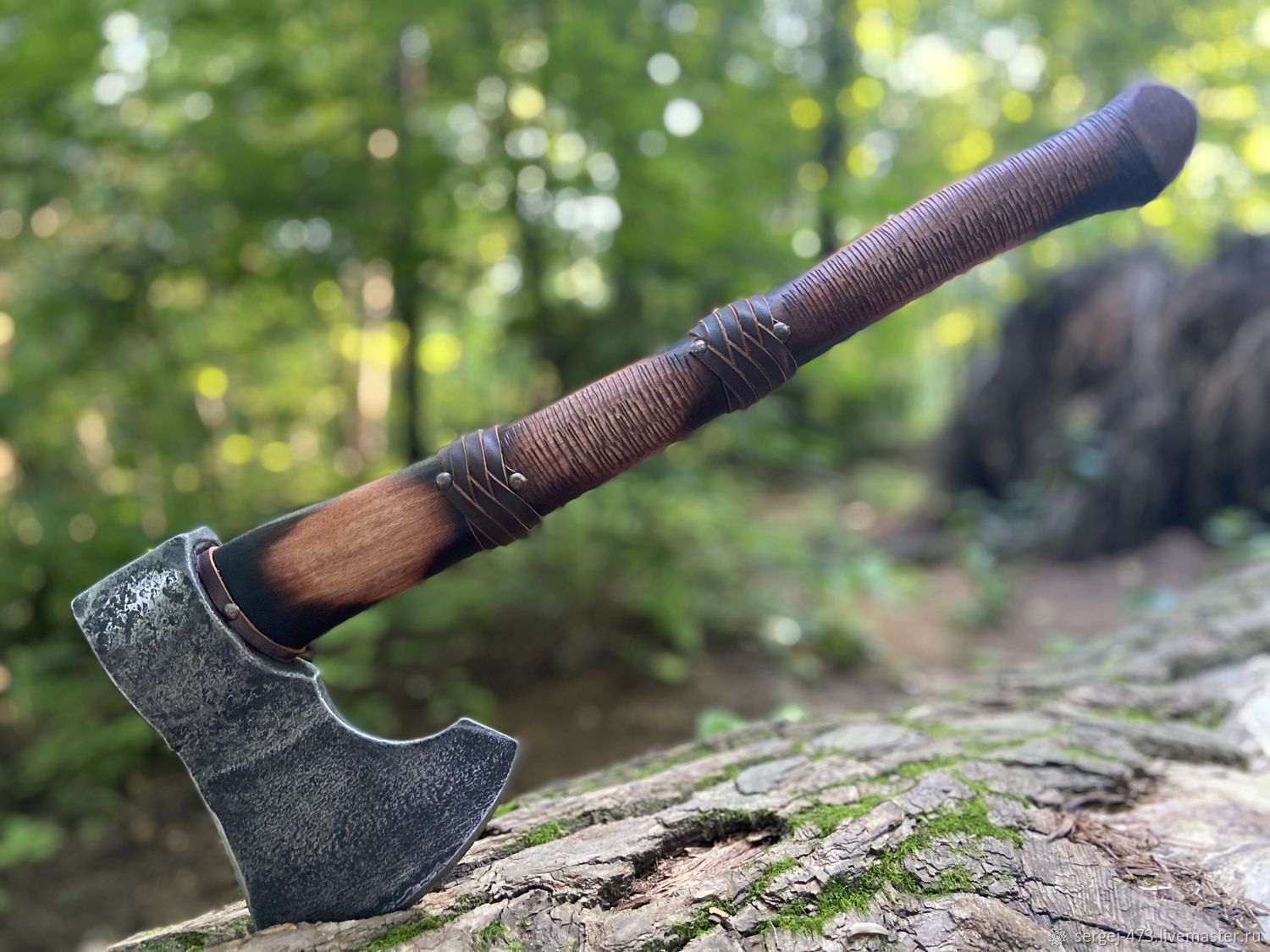
The blade can be straight or round in shape:
- direct splits this or that object better;
- the rounded one is usually longer, and in this case, in addition to the chopping blow, there is also a cutting component of the blade.
The quality of steel is a very important point, because not only the durability of the tool, but also work productivity and human safety depend on this criterion. This is easy to check - just hit the blade with something hard:
- dull, quickly fading sound - the steel is bad, it’s better not to buy the instrument;
- sonorous, resonant - everything is in perfect order.
To improve performance, the blade is often double hardened and ground. In expensive ax models, the cutting edge is coated with a special compound, which allows you to work with the tool longer without sharpening.
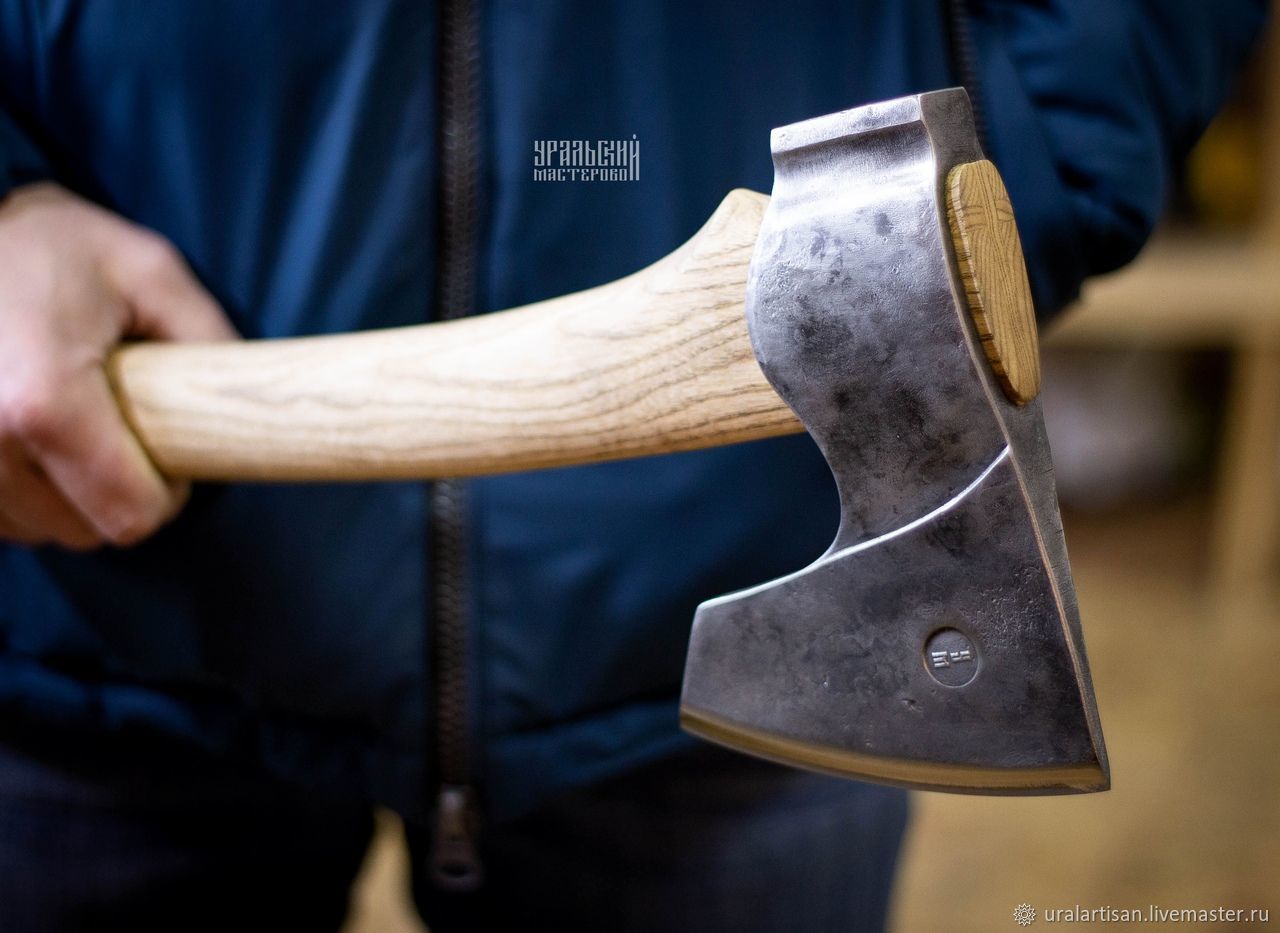
Toporische
The handle can be made of several materials:
- Tree. They use oak, ash, and birch. This ax handle is not heavy, absorbs shock and is easily replaced if broken or worn out. Particular attention is paid to the direction of the fibers. Ideally, they should be positioned parallel to the tip of the axe. The transverse direction indicates improper cutting, which subsequently leads to rapid breakage of the handle.
- Fiberglass. Quite stable and reliable. It does not rust, suppresses vibration during operation, and rubber inserts improve hand grip.
- Metal. Such models represent one whole head and ax - one-piece products.The option is quite reliable and durable, but due to the all-metal design, such an ax will be extremely heavy - with prolonged chopping, a person’s hands quickly get tired, which reduces work productivity. To prevent the grip from slipping, rubberized inserts are often placed on it.
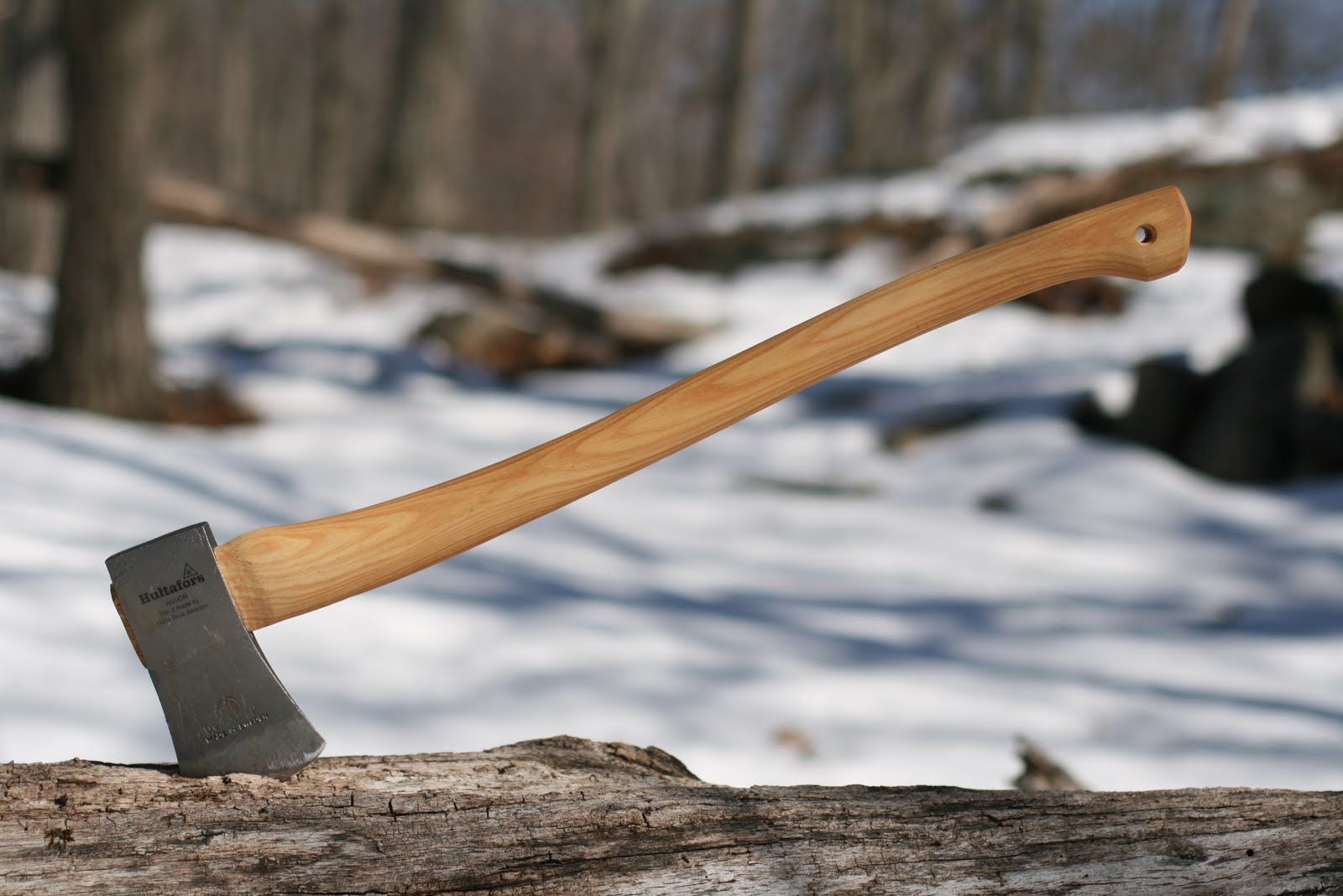
So, the classic option for an ax is, of course, wood. It is not particularly expensive, can be easily processed, and also absorbs impact energy well, which makes long-term work easier. But it also has disadvantages - it is not resistant to moisture and can crack over time.
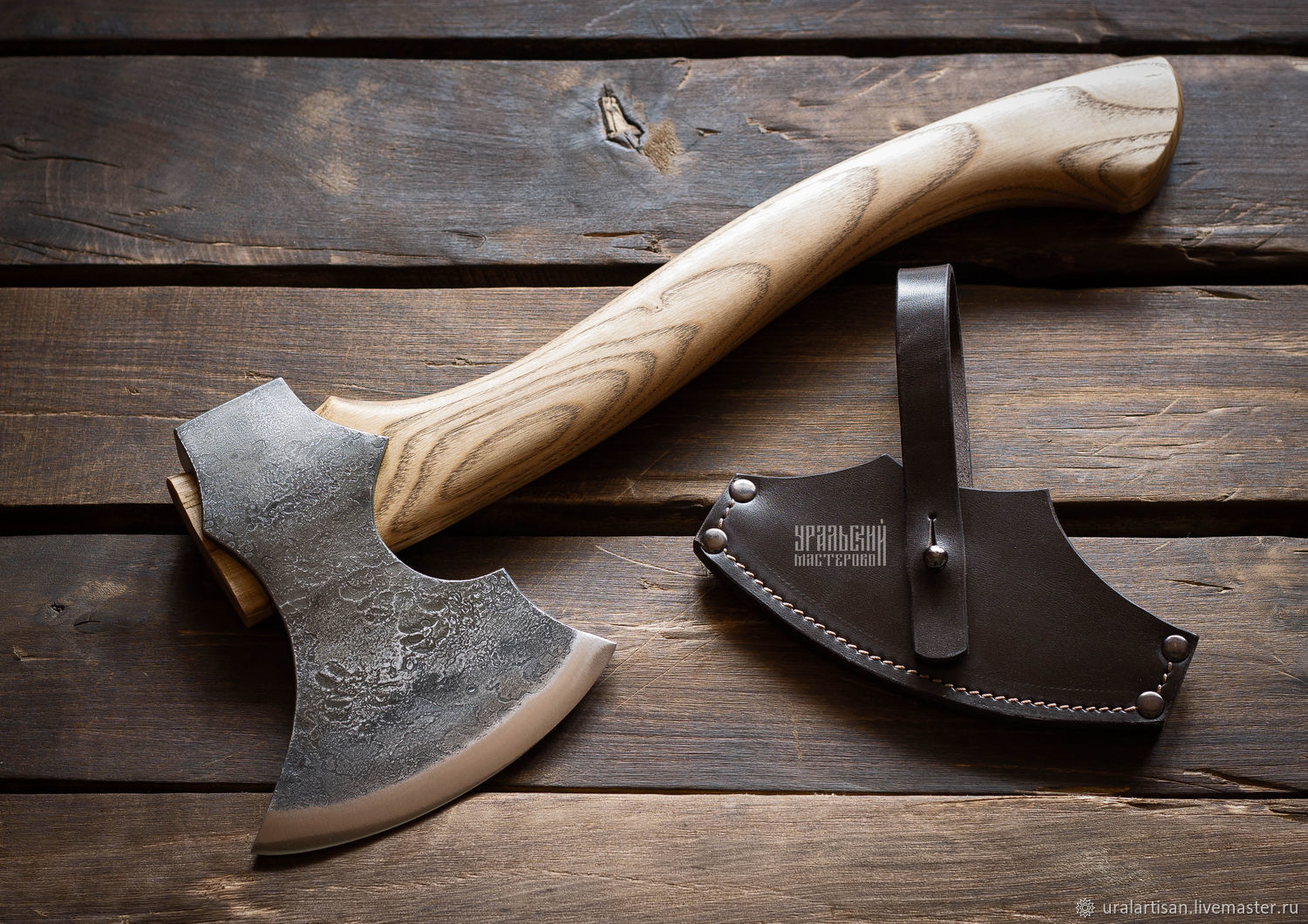
If you want to get a durable and convenient tool, then it is better to take a closer look at fiberglass. Yes, products made from it are more expensive than, for example, wood, but this is a modern material that does not rot, crack, or deform, is resistant to moisture and frost, and absorbs shock loads well.
The size of the handle is an important criterion when performing specific work. A short grip makes for more accurate strikes, a long grip is not as accurate, but the impact force will be an order of magnitude higher.
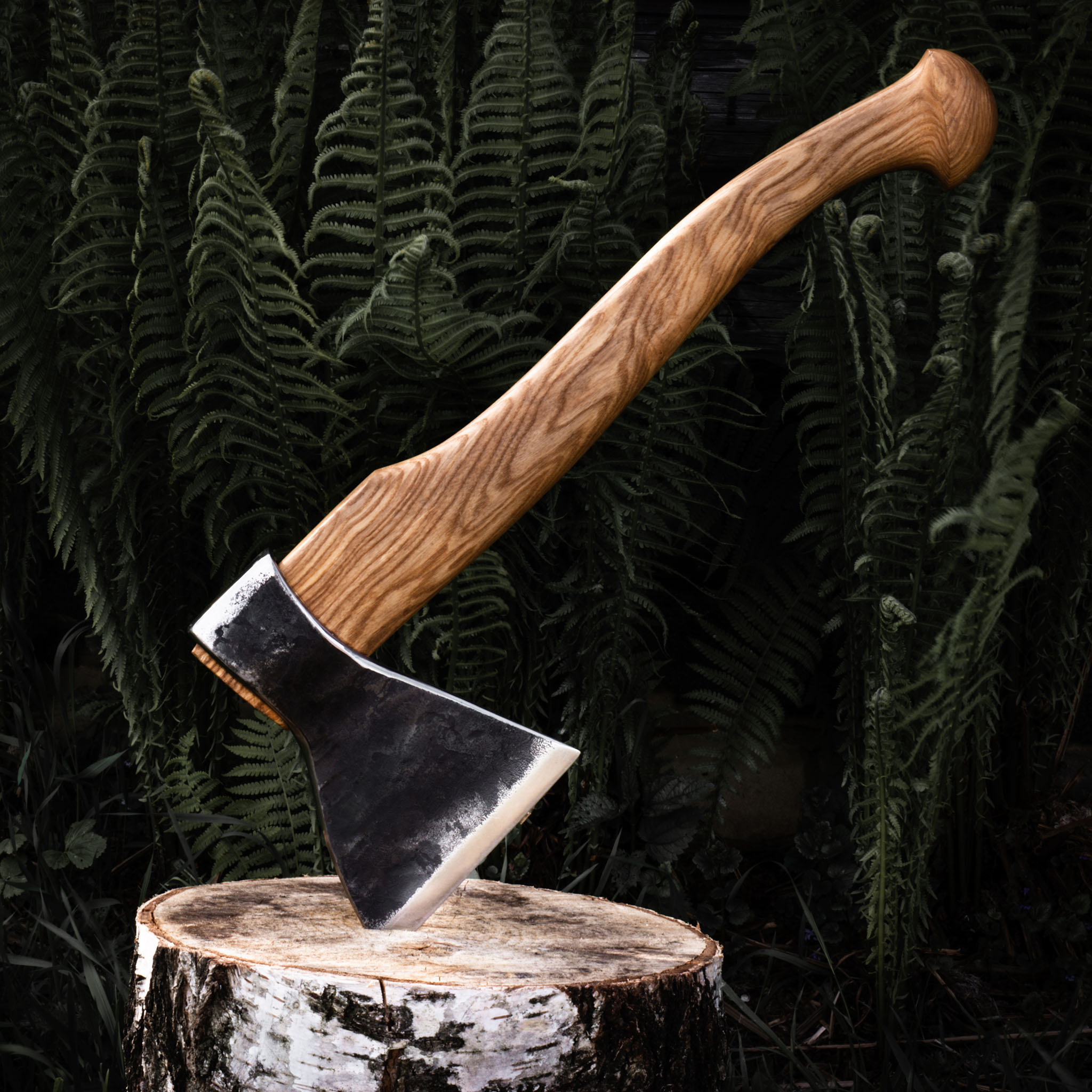
Indicators of a good ax
To summarize, we can draw the following conclusions:
- Weight. This criterion affects the functionality of the axe. If the head is too heavy, then the person will spend a lot of energy to lift it and will lose on the accuracy of the blow. And with light heads you won’t get a deep cut. A good ax should fit comfortably in the palm of your hand.
- Handle material. A common option is wood. Fiberglass is no worse, but costs more. If you want to save money, choose the first option. To get a durable tool, take a closer look at fiberglass.
- Blade shape. It can be rounded or straight. The first focuses on cutting qualities. The second is ideal for splitting wood.
- Handle length.For tourist axes - about 20–30 cm, models for cutting trees or splitting firewood - from 35 to 55 cm.
- Practicality and safety. If you rarely use the tool, make sure that the kit includes a case. Such an accessory will not only protect a person from accidental injuries, but will also extend the life of the tool.
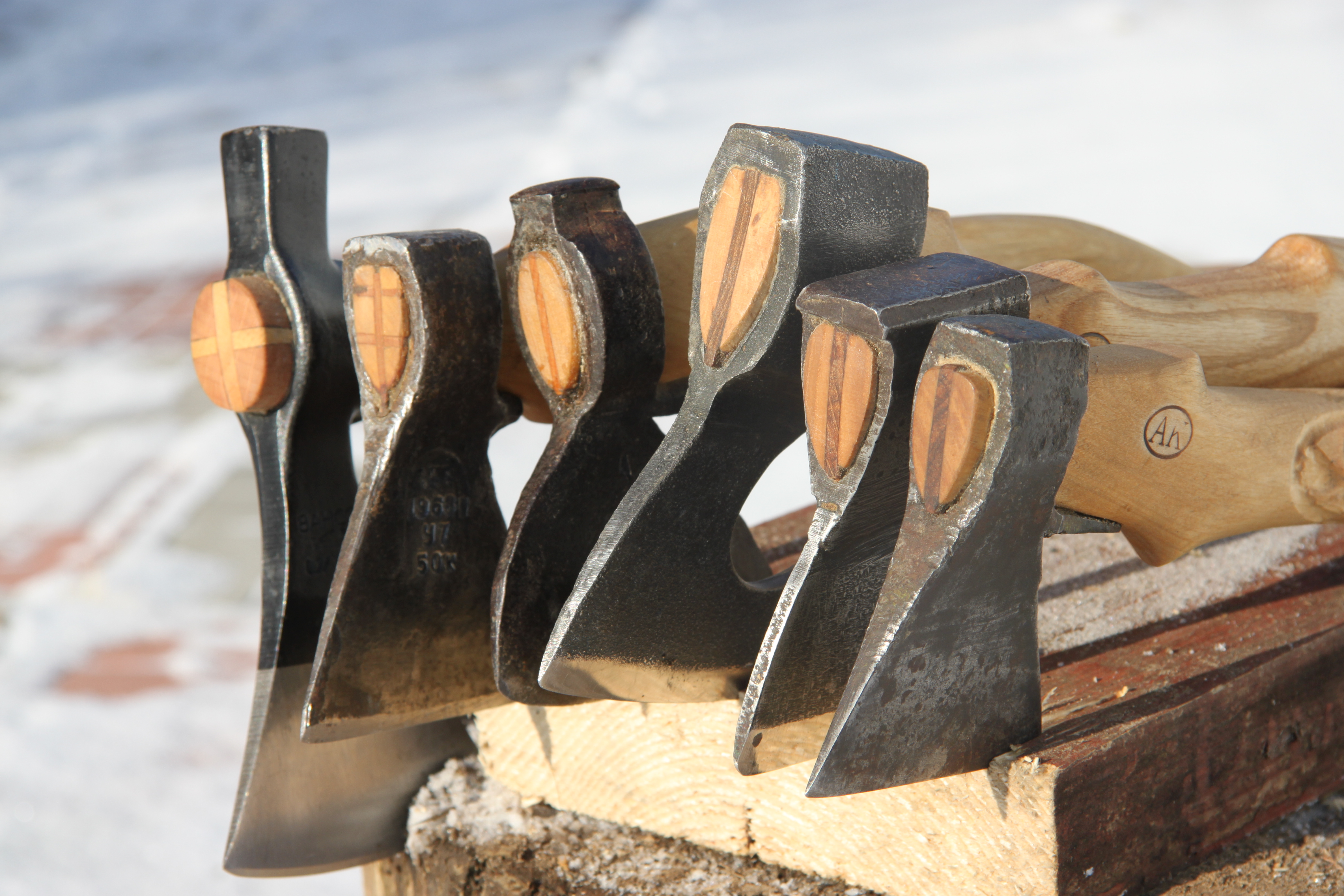
In general, when buying an ax you should not look for reasons to save money. In the selection process, preference should be given to those models for the manufacture of which only high-quality and durable materials were used. Only in this case will you be able to buy a tool that will last for decades.





